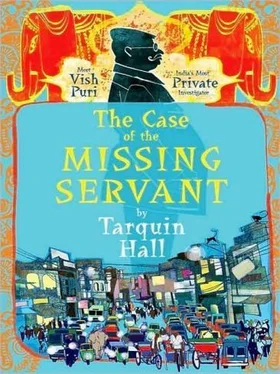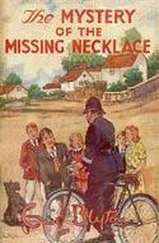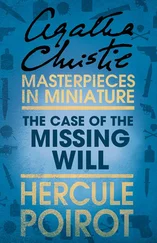Tarquin Hall - The Case of the Missing Servant
Здесь есть возможность читать онлайн «Tarquin Hall - The Case of the Missing Servant» весь текст электронной книги совершенно бесплатно (целиком полную версию без сокращений). В некоторых случаях можно слушать аудио, скачать через торрент в формате fb2 и присутствует краткое содержание. Год выпуска: 2009, ISBN: 2009, Издательство: Simon & Schuster, Жанр: Детектив, на английском языке. Описание произведения, (предисловие) а так же отзывы посетителей доступны на портале библиотеки ЛибКат.
- Название:The Case of the Missing Servant
- Автор:
- Издательство:Simon & Schuster
- Жанр:
- Год:2009
- ISBN:978-1-4165-8402-5
- Рейтинг книги:3 / 5. Голосов: 1
-
Избранное:Добавить в избранное
- Отзывы:
-
Ваша оценка:
- 60
- 1
- 2
- 3
- 4
- 5
The Case of the Missing Servant: краткое содержание, описание и аннотация
Предлагаем к чтению аннотацию, описание, краткое содержание или предисловие (зависит от того, что написал сам автор книги «The Case of the Missing Servant»). Если вы не нашли необходимую информацию о книге — напишите в комментариях, мы постараемся отыскать её.
The Case of the Missing Servant — читать онлайн бесплатно полную книгу (весь текст) целиком
Ниже представлен текст книги, разбитый по страницам. Система сохранения места последней прочитанной страницы, позволяет с удобством читать онлайн бесплатно книгу «The Case of the Missing Servant», без необходимости каждый раз заново искать на чём Вы остановились. Поставьте закладку, и сможете в любой момент перейти на страницу, на которой закончили чтение.
Интервал:
Закладка:
Tarquin Hall
The Case of the Missing Servant
This book is dedicated to the memory of
Grandpa Briggs
One
Vish Puri, founder and managing director of Most Private Investigators Ltd., sat alone in a room in a guesthouse in Defence Colony, south Delhi, devouring a dozen green chili pakoras [1] See glossary.
from a greasy takeout box.
Puri was supposed to be keeping off the fried foods and Indian desserts he so loved. Dr. Mohan had "intimated" to him at his last checkup that he could no longer afford to indulge himself with the usual Punjabi staples.
"Blood pressure is up, so chance of heart attack and diabetes is there. Don't do obesity," he'd advised.
Puri considered the doctor's stern warning as he sank his teeth into another hot, crispy pakora and his taste buds thrilled to the tang of salty batter, fiery chili and the tangy red chutney in which he had drowned the illicit snack. He derived a perverse sense of satisfaction from defying Dr. Mohan's orders.
Still, the fifty-one-year-old detective shuddered to think what his wife would say if she found out he was eating between meals-especially "outside" food that had not been prepared by her own hands (or at least by one of the servants).
Keeping this in mind, he was careful not to get any incriminating grease spots on his clothes. And once he had finished his snack and disposed of the takeout box, he washed the chutney off his hands and checked beneath his manicured nails and between his teeth for any telltale residue. Finally he popped some sonf into his mouth to freshen his breath.
All the while, Puri kept an eye on the house across the way and the street below.
By Delhi standards, it was a quiet and exceptionally clean residential street. Defence Colony's elitist, upper middle-class residents-army officers, doctors, engineers, babus and the occasional press-wallah-had ensured that their gated community remained free of industry, commerce and the usual human detritus. Residents could take a walk through the well-swept streets or idle in the communal gardens without fear of being hassled by disfigured beggars…or having to negotiate their way around arc welders soldering lengths of metal on the sidewalks…or halal butchers slaughtering chickens.
Most of the families in Defence Colony were Punjabi and had arrived in New Delhi as refugees following the catastrophic partition of the Indian subcontinent in 1947. As their affluence and numbers had grown over the decades, they had built cubist cement villas surrounded by high perimeter walls and imposing wrought-iron gates.
Each of these minifiefdoms employed an entire company of servants. The residents of number 76, D Block, the house that Puri was watching, retained the services of no fewer than seven full-time people-two drivers, a cook, a cleaner-cum-laundry-maid, a butler and two security guards. Three of these employees were "live-in" and shared the barsaati on the roof. The overnight security guard slept in the sentry box positioned outside the front gate, though strictly speaking, he really wasn't meant to.
The family also relied on a part-time dishwasher, a sweeper, a gardener and the local press-wallah who had a stand under the neem tree down the street where he applied a heavy iron filled with hot charcoal to a dizzying assortment of garments, including silk saris, cotton salwars and denim jeans.
From the vantage point in the room Puri had rented, he could see the dark-skinned cleaner-cum-laundry-maid on the roof of number 76, hanging underwear on the clothesline. The mali was on the first-floor balcony watering the potted plants. The sweeper was using up gallons of precious water hosing down the marble forecourt. And, out in the street, the cook was inspecting the green chilis being sold by a local produce vendor who pushed a wooden cart through the neighborhood, periodically calling out, "Subzi-wallah!"
Puri had positioned two of his best undercover operatives, Tubelight and Flush, down in the street.
These were not their real names, of course. Being Punjabi, the detective had nicknames for most of his employees (and this being India, his company was as labor intensive as they came), relatives and close friends. For example, he called his wife Rumpi; his new driver, Handbrake; and the office boy, who was extraordinarily lazy, Door Stop.
Tubelight was so named because he was a heavy sleeper and took a while to flicker into life in the morning. The forty-three-year-old hailed from a clan of hereditary thieves, and therefore had been highly adept at cracking locks, safes and ignitions since childhood.
As for Flush, he had a flush toilet in his home, a first for anyone in his remote village in the state of Haryana. An electronics and computer whiz, during his career with Indian intelligence he had once managed to place a microscopic bug inside the Pakistani ambassador's dentures.
The other member of the team, Facecream, was waiting a few miles away and would play a crucial part in the operation later that evening. A beautiful and feisty Nepali woman who had run away from home as a teenager to join the Maoists but became disillusioned with the cause and escaped to India, she often worked undercover-one day posing as a street sweeper; the next as irresistible bait in a honeytrap.
Puri himself was known by various names.
His father had always addressed him by his full name, Vishwas, which the detective had later shortened to Vish because it rhymes with "wish" (and "Vish Puri" could be taken to mean "granter of wishes"). But the rest of his family and friends knew him as Chubby, an affectionate rather than derisive sobriquet-although, as Dr. Mohan had pointed out so indelicately, he did need to lose about thirty pounds.
Puri insisted on being called Boss by his employees, which helped remind them who was in charge. In India, it was important to keep a strong chain of command; people were used to hierarchy and they responded to authority. As he was fond of saying, "You can't have every Johnny thinking he's a Nelson, no?"
The detective reached for his walkie-talkie and spoke into it.
"What's that Charlie up to? Over," he said.
"Still doing timepass, Boss," replied Flush. There was a pause before he remembered to add the requisite "Over."
Flush, who was thirty-two, skinny and wore thick, milk-bottle-bottom glasses, was sitting in the back of Puri's Hindustan Ambassador monitoring the bugs the team had planted inside the target's home earlier, as well as all incoming and outgoing phone calls. Meanwhile, Tubelight, who was middle aged with henna-dyed hair and blind in one eye, was disguised as an autorickshaw-wallah in oily clothes and rubber chappals. Crouched on his haunches on the side of the street among a group of bidi-smoking local drivers, he was gambling at cards.
Puri, a self-confessed master of disguise, had not changed into anything unusual for today's operation, though seeing him for the first time, you might have been forgiven for thinking this was not the case. His military moustache, first grown when he was a recruit in the army, was waxed and curled at the ends. He was wearing one of his trademark tweed Sandown caps, imported from Bates of Jermyn Street in Piccadilly, and a pair of prescription aviator sunglasses.
Now that it was November and the intense heat of summer had subsided, he had also opted for his new grey safari suit. It had been made for him, as all his shirts and suits were, by Mr. M. A. Pathan of Connaught Place, whose grandfather had often dressed Muhammad Ali Jinnah, founder of Pakistan.
"A pukka Savile Row finish if ever I saw one," said the detective to himself, admiring the cut in a mirror in the empty room. "Really tip-top."
Читать дальшеИнтервал:
Закладка:
Похожие книги на «The Case of the Missing Servant»
Представляем Вашему вниманию похожие книги на «The Case of the Missing Servant» списком для выбора. Мы отобрали схожую по названию и смыслу литературу в надежде предоставить читателям больше вариантов отыскать новые, интересные, ещё непрочитанные произведения.
Обсуждение, отзывы о книге «The Case of the Missing Servant» и просто собственные мнения читателей. Оставьте ваши комментарии, напишите, что Вы думаете о произведении, его смысле или главных героях. Укажите что конкретно понравилось, а что нет, и почему Вы так считаете.












